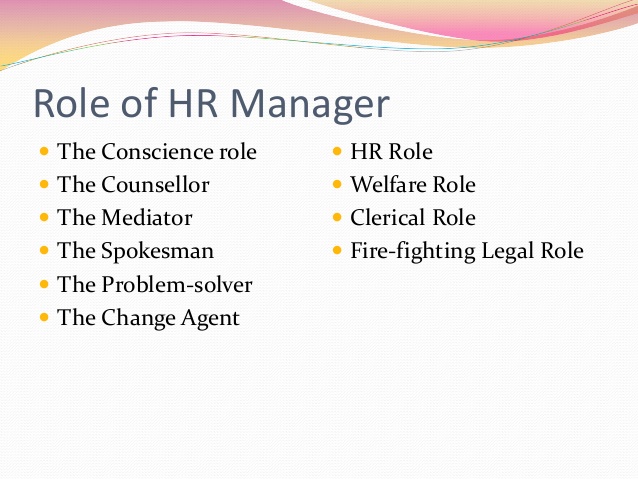Human Resources Best Practices
The Role of an HR Manager-Complete Guide
The Mintly Team
November 17, 2023
Human Resource (HR) managers are at the core of every successful organization. They serve as the linchpin between the workforce and management, ensuring that both sides are aligned with the company’s goals and values. HR managers are responsible for a variety of tasks that are critical to the effective management of human capital. This guide will delve into the multifaceted role of an HR manager, outlining their key responsibilities, required skillset, and the impact they have on an organization.
Understanding the Role of an HR Manager
An HR manager plays a crucial role in any organization. They are responsible for managing and overseeing the human resources functions within the company. The role of an HR manager involves various responsibilities that contribute to the overall success of the organization.
Firstly, an HR manager is responsible for recruitment and selection. They work closely with hiring managers to identify the staffing needs of the organization and develop effective recruitment strategies. This includes creating job descriptions, advertising job vacancies, screening resumes, conducting interviews, and making job offers. The HR manager ensures that the right candidates are hired to fill the required positions.
Secondly, an HR manager is involved in employee onboarding and training. They welcome new employees to the organization and ensure that they have a smooth transition into their roles. This involves providing them with necessary information about company policies, procedures, and benefits. Additionally, the HR manager identifies training needs within the organization and arranges for appropriate training programs to enhance employee skills and knowledge.
Another important aspect of the HR manager’s role is employee relations. They act as a mediator between employees and management, handling conflicts and resolving employee grievances. The HR manager ensures that employees are treated fairly and that their rights are protected. They also promote a positive work culture by organizing employee engagement activities and fostering a supportive environment.
Furthermore, an HR manager is responsible for performance management. They establish performance goals and objectives, conduct performance evaluations, and provide feedback to employees. The HR manager identifies areas for improvement and works with employees to develop their skills and enhance their performance. They also handle employee promotions, transfers, and terminations.
Lastly, an HR manager plays a strategic role in organizational development. They contribute to the development and implementation of HR policies and procedures that align with the organization’s goals and objectives. The HR manager also keeps up-to-date with employment laws and regulations to ensure compliance.
Key Responsibilities of an HR Manager
Recruitment and Staffing
HR managers play a pivotal role in attracting, selecting, and retaining talented individuals who can contribute to the growth and development of the company.
One of the primary responsibilities of an HR Manager is to develop effective recruitment strategies. They analyze the staffing needs of the organization, create job descriptions, and determine the most suitable recruitment methods. HR managers often collaborate with hiring managers to identify the desired skills and qualifications for each position.
Once the recruitment process begins, HR managers are involved in screening and shortlisting candidates. They review resumes, conduct interviews, and assess candidates based on their qualifications, experience, and cultural fit. HR managers also coordinate background checks and reference verifications to ensure the credibility of potential hires.
Moreover, HR managers are responsible for negotiating job offers and managing the onboarding process. They ensure that new employees receive proper orientation and training to integrate smoothly into the organization. Additionally, HR managers monitor employee satisfaction and address any concerns or conflicts that may arise during the onboarding period.
Training and Development
Investing in employees’ growth is essential for maintaining a competitive edge. HR managers assess the skills and knowledge within an organization and determine what training is needed to grow and retain these skills. They create training programs and succession plans to enhance employee performance and prepare for future leadership needs.
Performance Management
HR managers design and implement performance management systems. These systems help track employee performance, provide feedback, and set objectives that align with the company’s strategic goals. They work with managers to address performance issues and ensure a fair evaluation process.
Compensation and Benefits
Another crucial aspect of an HR manager’s job is to develop competitive compensation packages. They conduct regular market research to determine industry standards, design equitable pay structures, and manage benefit offerings such as health insurance, retirement plans, and other perks to ensure employee satisfaction and retention.
Employee Relations
HR managers serve as a bridge between management and employees. They handle workplace conflicts, maintain employee morale, and cultivate a positive work environment. They also ensure that company policies are communicated effectively and adhered to by staff.
Compliance
Staying abreast of legal requirements is vital for any HR manager. They are responsible for ensuring that the company complies with all labor laws and regulations. This ranges from maintaining proper records, handling immigration issues, managing workplace safety protocols, to implementing equal opportunity practices.
Strategy Planning
HR managers play a key role in strategic planning by identifying human capital needs and developing strategies to meet those needs. This includes workforce planning, organizational design, and change management initiatives that support the company’s long-term goals.
Required Skillset for an HR Manager
The role of an HR Manager is crucial in any organization, as they are responsible for managing the human resources and ensuring the smooth functioning of the workforce. To excel in this role, HR managers need to possess a specific skillset that allows them to effectively handle various tasks and responsibilities.
First and foremost, communication skills are essential for an HR Manager. They must be able to communicate clearly and effectively with employees, management, and other stakeholders. Strong written and verbal communication skills enable them to convey information, policies, and procedures accurately and professionally.
Another important skill is interpersonal skills. HR managers have to deal with a diverse range of individuals on a daily basis, including employees, job applicants, and external stakeholders. They need to be able to build positive relationships, resolve conflicts, and handle sensitive situations with tact and diplomacy.
Organizational skills are also crucial for an HR Manager. They have to manage multiple tasks simultaneously, such as recruitment, employee onboarding, training programs, performance evaluations, and employee relations. Being organized allows them to prioritize tasks, meet deadlines, and ensure that everything runs smoothly.
Analytical skills are vital for HR managers, as they often deal with data related to employee performance, compensation, and benefits. They need to be able to analyze this data to make informed decisions and recommendations. Additionally, problem-solving skills are necessary for addressing issues and finding solutions that benefit both the employees and the organization.
HR managers should also possess knowledge of employment laws, regulations, and industry best practices. Staying updated on legal requirements ensures compliance and helps them make informed decisions regarding employee rights and responsibilities.
Lastly, HR managers must be adaptable and possess a high level of emotional intelligence. They need to navigate through complex situations, handle employee concerns, and adapt to changing organizational needs. Emotional intelligence enables them to understand and empathize with others, fostering a positive work environment.
Impact on an Organization
An effective HR manager can significantly impact their organization in several ways:
- Talent Retention: By creating a supportive environment, they can reduce turnover rates.
- Performance Improvement: Effective training and development lead to a more capable workforce.
- Risk Management: Ensuring compliance with laws prevents potential legal issues.
- Cost Management: Strategic HR planning can save money by optimizing staffing levels.
- Cultural Development: HR managers shape company culture, which impacts productivity and employee satisfaction.
HR Manager in Traditional Industries
The role of an HR Manager in traditional industries like jewellery, precious metals, retail, or mining is crucial for the smooth functioning of the organization. The HR Manager plays a vital role in managing the human resources within these industries. They play a vital role in attracting Talent (both White Collar and Blue Collar) for various positions.
If you are someone with HR experience in these traditional industries, there is a need for such roles. Industry experience varies little bit different than the core HR experiences. Carrying both these skillsets will help you in leveraging your candidature. Many best paying jobs in precious metals are available. It is important for HR to understand what is what in the industry before scouting for Talent.
In traditional industries, the HR Manager is responsible for talent acquisition and recruitment. They identify and attract skilled individuals who possess the necessary expertise and experience to contribute to the organization’s success. Additionally, they oversee the onboarding process and ensure that new employees are integrated into the company culture.
Furthermore, the HR Manager is responsible for employee training and development. They design and implement training programs to enhance skills and knowledge, ensuring that employees are equipped to meet industry demands. The HR Manager also plays a key role in performance management, conducting regular evaluations and providing feedback to foster growth and improvement.
Moreover, the HR Manager handles employee relations and ensures compliance with labor laws and regulations. They address employee concerns, mediate conflicts, and implement policies that promote a safe and inclusive work environment. Additionally, they manage compensation and benefits programs, ensuring competitive remuneration packages to attract and retain top talent.
Conclusion
The role of an HR manager is complex but immensely rewarding. It requires a balance of strategic thinking and operational execution. By effectively managing their various responsibilities, HR managers can contribute to creating a workplace where employees thrive, leading to greater success for the entire organization. As the business world continues to evolve, so too will the role of the HR manager, making it one of the most dynamic positions within any company.
All Tags
